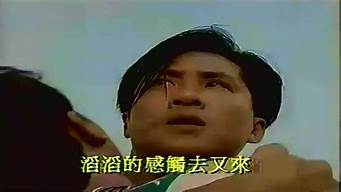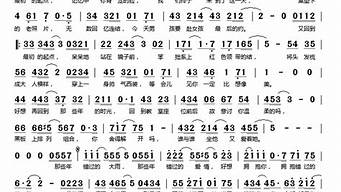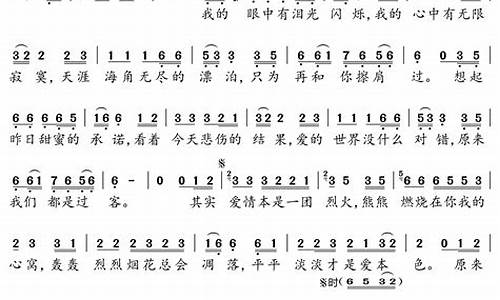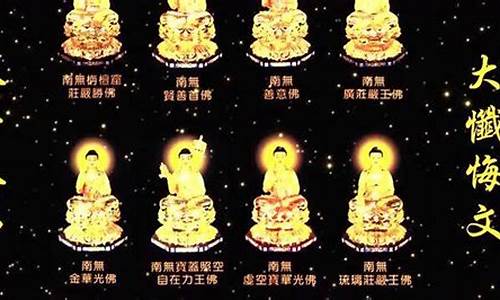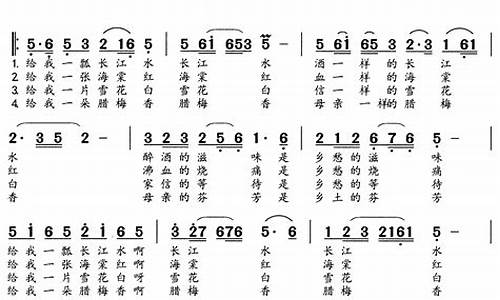_MANY YOU
1.a few .a little ,many ,much,few ,little的用法,有谁知道,谢谢
2.many怎么读
3.a lot of 与many/much有什么区别
4.any some many和much的区别
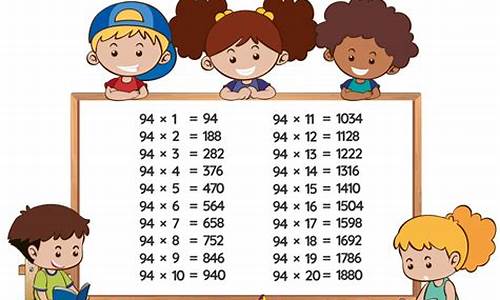
一、修饰词不同
1、many只能修饰可数名词复数。
2、a?lot?of既可修饰可数名词,也可修饰不可数名词。
二、句式不同
1、much一般是用在疑问句和否定句里。
2、而a lot of常用于肯定句中。
三、用法不同
1、many
pron. (代词)
1)many用作代词时,作“许多,许多人”解,常用于many?of...结构中,谓语动词须用复数。
2)many或a good〔great〕?many用作主语时,其谓语动词用复数。
3)在英语口语中,?many通常用于否定句、疑问句中。在肯定句中many多用于正式文体,相当于口语中的a lot of或lots of。
另外,当其单独作主语或宾语,含有对比意味时,当其充当名词词组中心,只带有后置定语时或当其前面常有as, so, too, very, a good, a great等词或词组时,many也用于肯定句中。
2、lot
n. (名词)
lot的基本意思是“许多,大量”,在肯定句中常用于a?lot?of或lots of结构,可修饰可数名词,也可修饰不可数名词。
其含意与many或much相同。当它们在句中与其他词一起作主语时,谓语动词应与其所修饰的名词或代词在数上保持一致。
a few .a little ,many ,much,few ,little的用法,有谁知道,谢谢
这道题我会,我可以帮忙解答哦?,先给大家总结一下?many 和a lot of?的区别:
"Many" 和 "a lot of" 都表示大量的数量,但是 "many" 更强调可数名词的复数形式,并在正式场合使用更普遍;而 "a lot of" 则更为通用,可以用于可数名词的复数和不可数名词,并且在口语中更常见。
在通过一个表格来了解一下?many 和a lot of?吧?:
欧克,最后再来一波?many 和a lot of?的具体区别?:区别1: 用法不同"many" 可以作为名词或形容词,用于肯定句、疑问句和否定句中,用来表示数量多或频繁。它可以修饰可数名词的复数形式,也可以用于修饰不可数名词,但在这种情况下,通常与 "of" 连用。
"a lot of" 是一个固定词组,用来表示大量,许多。它在口语和非正式语境中使用广泛,可以修饰可数名词的复数形式,也可以修饰不可数名词。在形式上,"a lot of" 相当于 "many" 或 "much",但比较灵活和口语化。
many例子:1. There are many books on the shelf. (书架上有很多书。)
2. Do you he many friends? (你有很多朋友吗?)
a lot of例子:1. There are a lot of people at the party. (聚会上有很多人。)
2. She has a lot of experience in the field. (她在这个领域有很多经验。)
区别2: 语气不同"many" 在语气上较正式,通常在书面语和正式场合使用。
"a lot of" 更加口语化和非正式,在口语和非正式场合使用广泛。
many例子:1. In many cultures, it is customary to greet with a handshake. (在许多文化中,用握手来问候是习惯的。)
2. Many people find it challenging to learn a new language. (许多人发现学习一门新语言很有挑战性。)
a lot of例子:1. I he a lot of things to do today. (我今天有很多事情要做。)
2. He has a lot of friends from different countries. (他有很多来自不同国家的朋友。)
区别3: 翻译不同"many" 翻译为 "许多"、"很多" 等,强调数量或频繁。
"a lot of" 翻译为 "很多"、"许多" 等,强调数量较大。
many例子:1. There are many opportunities in the city for career growth. (城市里有许多职业发展的机会。)
2. She has many hobbies, such as painting and playing musical instruments. (她有很多爱好,比如绘画和弹奏乐器。)
a lot of例子:1. The park has a lot of beautiful flowers. (这个公园有很多美丽的花。)
2. He bought a lot of souvenirs during his trip abroad. (他在国外旅行期间购买了很多纪念品。)
区别4: 连接词不同"many" 通常不与其他词组合使用,直接修饰名词。
"a lot of" 后面可以接可数名词的复数形式或不可数名词,常与 "of" 连用。
many例子:1. Many students participated in the school event. (很多学生参加了学校活动。)
2. Many water bottles were left behind after the marathon. (马拉松赛后留下了很多水瓶。)
a lot of例子:1. She has a lot of books on her bookshelf. (她书架上有很多书。)
2. We bought a lot of fresh fruits from the market. (我们从市场买了很多新鲜水果。)
many怎么读
many,few,a few,much,little,a little的用法
* 这几个代词都是表示数量的,many,much表示“多”,few,little表示“少”。many,few代表可数名词,much,little代表不可数名词。
many可用作主语(a),宾语(b):
a. Many of the mistakes were just careless. 错误中有很多是粗心造成的。
b. How many do you need? 你需要多少?
much也可用作主语(a)或宾语(b):
a. Much of the information has been inaccurate. 这信息很多都不准确。
Much hangs on his decision. 许多事有赖于他的决定。
b. I hen’t time to do much. 我没有时间做很多事。
I he much to talk over with him. 我有很多事要和他谈。
few表示“很少”(负面意义,有“不足的意味”。),也可作主语(a)或宾语(b):
a. Few of the players played really well. 没几个球员真正打得好。
Very few of the books are easy enough for me. 这些书没几本容易到我能读。
b. We saw few of the sights as we had so little time. 我们只有那么一丁点时间,所看的景点寥寥无几。
I knew few of the people there. 那儿的人我认识的很少。
a few表示“有几个”,有正面(肯定)意思,相当于several,也可作主语(a)或宾语(b):
a. Not a few of my friends are vegetarian. 我朋友中不少人吃素。
Only a few of the people who lied were suitable. 只有少数几个申请者合适。
b. She’s written lots of books but I’ve only read a few. 她写了很多书,但我只看过几本。
I met a few of my friends in Paris. 在巴黎我碰见我的几个朋友。
little表示“很少”(意思接近nothing,是负面含义),可用作主语(a)或宾语(b):
a. The little that I he seen of his work is satisfactory. 他的工作就我所见的那一小部分而言是令人满意的。
Little is known about his childhood. 人们对他的童年知之甚少。
b. You he done very little for us. 你几乎没为我们做什么事。
You had little to tell us. 他没什么可告诉我们。
a little表示“有一点”(是正面含义,相当于a few,也可以用a bit或a little bit),在句中也可作主语(a)或宾语(b):
a. There is still a little left. 还剩一点。
A little will do. 一点儿就行。
b. Tell me a little about his illness. 告诉我一点他的病情。
Try and eat a little. 尽量吃一点吧。
* 这些词都可用作定语,这时有人称作限定词或形容词:
many表示“许多”,用来修饰可数名词,多用在疑问句或否定句中(a),也可在肯定句中修饰主语(b),还可和too,so等词一起用(c):
a. Do you he many friends? 你有很多朋友吗?
(比较:I he a lot of friends.)
Not many people are interested in the activity. 没多少人对这活动感兴趣。
b. Many people do not get enough to eat. 许多人没有足够的东西吃。
Many students supported the plan. 许多学生赞成这项。
c. There are too many mistakes in this essay. 这篇论文错误太多。
I never saw so many swans on the lake. 我从未看见湖上有这么多天鹅。
much也表示“多”,用来修饰不可数名词,主要用于疑问句及否定句中(a),也可和too,so用在肯定句中(b):
a. Do you take much interest in it? 你对此兴趣大吗?
We don’t he much free time. 我们没有多少空余时间。
b. You’ve given me too much food. 你给我的食物太多了。
So much money has been spent on it. 这上面花的钱太多了。
few表示“很少”,修饰可数名词:
We saw few students there. 我们在那儿几乎没看见学生。
They exchanged few words. 他们没交谈几句。
a few表示“几个”,修饰可数名词:
He has a few friends in this city. 他在这个城市里有几个朋友。
My time is precious; I can only give you a few minutes. 我的时间很宝贵,我只能见你几分钟。
little表示”很少”,修饰不可数名词(意思接近no,可译为”没有什么”):
We got little help from them. 我们没有从他们那儿得到什么帮助。
There is little hope that she will recover. 她痊愈的希望很小。
a little表示“一点”,“有些”(意思接近some):
A little discipline would do him a world of good. 稍微处分他一下会对他大有好处。
Come in and he a little whisky. 进来喝点威士忌。
a lot of 与many/much有什么区别
many的读音是:英['meni]。
many的读音是:英['meni]。many的详尽释义是adj.(形容词)许多的,多的,很多的多数的不少的多种的,多样的。many的意思是adj.许多的;pron.许多人或物;n.许多;许多人。
一、详尽释义点此查看many的详细内容
adj.(形容词)许多的,多的,很多的多数的不少的多种的,多样的pron.(代词)许多,大量许多人,大多数人许多次,常常det.(限定词)许多二、英英释义
Adjective:a quantifier that can be used with count nouns and is often preceded by `as' or `too' or `so' or `that'; amounting to a large but indefinite number;"many temptations"
"the temptations are many"
"a good many"
"a great many"
"many directions"
"take as many les as you like"
"too many clouds to see"
"never saw so many people"
三、网络解释
1. 多:如果我们看到一个集合(譬如Customer.Orders),我们定其多重性为多(many).然后,在注册倒转(inverse)时,我们知道一个关系的两头的多重性,譬如,在上面的例子中,我们知道,每个Order可以有0..1个 Customer,每个Customer可以有多个Order.
四、例句
Many of these substances are innocuous.
这里的许多物质都无害。
A good many of beggars are blind.
乞丐中有许多人是盲人。
There are men here from all over the country. Many of them are from the south.
从全国各地来的人中有许多是南方人。
五、常见句型
用作形容词(adj.)用作定语~+ n.The band is composed of many famous musicians.
乐队由许多著名乐师组成。Not many people can write with the left hand.
用左手写字的人并不多。There are many more people than I expected.
比我预料的多出许多人。He has got many more books than he needs.
他得到的书比他所需要的多很多。There are so many new desks in the classroom.
这间教室里有这么多的新书桌。There are too many mistakes in your homework.
你的作业中错误太多了。How many students are absent today?
今天有多少学生缺课?用作表语S+be+~We are many, and they are few.
我们是多数,他们是少数。His words are many but meaning is not deep.
他说的话复杂而肤浅。The dishes were many, but they were all poorly cooked.
菜很多,但烧得都不好吃。用作代词(pron.)I did not find many.
我没有找到很多。There were a few, but not many.
有几个但是不多。Many of them were present at the conference.
他们中的许多人出席了这次会议。Many of us were too tired to go further.
我们当中许多人都累得走不动了。Many are called but few are chosen.
要得多,选得少。A good many are waiting for you.
许多人在等着你。There were a great many at the scene.
有许多人在场。You've given me too many.
你已经给我太多了。We got three generating sets but we need as many again.
我们得到三套发电机组,可是我们需要的比这多一倍。六、词汇搭配
用作形容词 (adj.)~+名词many a day许多天many a time多次副词+~so many如此多too many太多七、词义辨析
adj.(形容词)many, a great deal of, a lot of, a number of, lots of, many a, much这组词(组)都表示“许多”的意思。其区别在于:many是普通用语,其后只能接可数名词复数; many a是书面用语,后接单数可数名词,当修饰主语时谓语动词要用单数形式; much是普通用语,是对量和程度而言的,只能修饰不可数名词; a number of可用来修可数名词复数; a lot of和lots of既可接可数名词,也可接不可数名词,多用于肯定句。a great deal of后接不可数名词,谓语动词用单数,且常用于肯定句中。例如:Man and the ape he many things in common.人和猿有许多共同之处。Many a man comes or goes.一个又一个的人来来去去。A number of people came to the meeting from all over the world.来自世界各地的许多人参加了这次会议。A lot of friends are thinking of emigrating.许多朋友正在考虑移民国外。There are lots of antiques shops in Australia now.现在澳大利亚有许许多多的古玩店。She's earned a great deal of money in the last few weeks.在最近几个星期内,她挣了大量的钱。many的相关近义词
countless、numerous
many的相关反义词
few
many的相关临近词
MAO、Manx、Manyi、Manya、Manyo、Manyas、Manych、Manyon、many a、Manyom、manyat、Manyati
点此查看更多关于many的详细信息
any some many和much的区别
lot的基本意思是“许多,大量”,在肯定句中常用于a?lot?of或lots of结构,可修饰可数名词,也可修饰不可数名词。
其含意与many或much相同。当它们在句中与其他词一起作主语时,谓语动词应与其所修饰的名词或代词在数上保持一致。
区别就在于读音,用法,修饰词不同,如下:
1、用法不同。many意思是“很多”,与可数名词复数连用;much意思是“很多”,与不可数名词连用。a lot of既可与可数名词连用,也可与不可数名词连用。
2、读音不同。a lot of的英式读法是[? l?t ?v];美式读法是[? lɑ?t ?v]。many的式读法是['meni];美式读法是['meni]。much的英式读法是[m?t?];美式读法是[m?t?]。 ?
3、a lot of(=lots of)用在肯定句中,而many,much不受限制。如果将一个含有a lot of(=lots of)的肯定句改为否定句或疑问句,要将它们改为many或much。
扩展资料:
单词解析:
一、lot
1、音译:
n.?许多;大量;抽签;签;命运;一块地;拍卖品;一类或一些(人或物);批;套;份儿
adv.?很;非常
v.?划分;分配
2、用法:
n.(名词)
1)lot作“签,抽签”解时,常与介词by连用。
2)用作可数名词时表示“一批,某一类的人”,有单复数形式。
二、many
1、音译:
adj.?许多的
pron.?许多人或物
n.?许多;许多人
2、用法:
adj. (形容词)
1)many用作形容词时后接复数名词,表示许多同样的人或物(但数目不明确),用作主语时,其谓语动词要用复数形式。常用于否定句中。
2)many可用来强调more,可用too, so, how等修饰。
3)many多用作定语,只有在对比结构中,可用作表语,往往含有“虽然多”或“确实多”的意思。
三、much
1、音译:
adj.?许多的
adv.?很;非常;几乎
n.?许多
2、用法:
adv. (副词)
1)much用作副词主要表示“程度”,意为“非常,很,大大,更加,…如何”,多修饰动词(可放于其前或其后),也常修饰形容词或副词的比较级或最高级和分词。一般用于疑问句或否定句。
2)much表示程度还可作“几乎,大致”解。
3)much也可表示时间,意为“经常,时常”。
adj. (形容词)much用作形容词的基本意思是“许多的”,常后接不可数名词。
参考资料:
百度百科-lot
百度百科-many
百度百科-much
any、some、many、much的区别是:1.some用在肯定句。2.any用在疑问句和否定句。3.many修饰可数名词。4.much修饰不可数名词。
一、读音不同:
1.any
读音:英 [?eni]? 美 [?eni]?
2.some
读音:英 [s?m , s?m]? 美 [s?m , s?m]?
3.many
读音:英 [?meni]? 美 [?meni]?
4.much
读音:英 [m?t?]? 美 [m?t?]?
二、含义不同
1.any
释义:pron.(用于否定句和疑问句中或if、whether后)任何数量,任一数额;任一;任何一些.
2.some
释义:pron.(数量不确切时用)有些人,有些事物;部分;有的;有些;若干.
3.many
释义:pron.许多(与复数名词及动词连用,尤用于否定句或正式用语,表示大量;也用于疑问句以询问数字大小,并可与as、so 和 too 连用).
4.much
释义:pron.(与不可数名词连用,尤用于否定句;或与how连用以询问数量;也可与as、so和too连用)许多,大量,多少.
三、用法不同
1.any
语法:表示“一些”的时候可修饰可数名词复数及不可数名词,通常出现在疑问句和否定句中.
2.some
语法:一般用于肯定句中,来修饰可数名词和不可数名词.
3.many
语法:many表示,许多的,很多的.用来修饰可数名词,通常用在否定句和疑问句中.
4.much
语法:much修饰不可数名词.
扩展资料一、不定代词的定义:
不定代词,是英语语法术语,在句中可以作主语、宾语、表语、定语和状语。不定代词是不指明代替任何特定名词或形容词的代词。
二、不定代词的用法:
1.作主语
释义:做主语时谓语动词用复数。
例句:Both of them are teachers.他们两人都是教师。
2.作宾语
例句:I know nothing about this person.我对这个人一无所知。
3.作表语
例句:This book is much too difficult for a child.这本书对一个小孩来说太难了。
4.作定语
例句:There is a little water in the glass.玻璃杯里有一些水。
5.作状语
释义:修饰不定代词的词,一般情况下要后置。
例句:I can't find my book anywhere.我在任何地方都不能找到我的书。
声明:本站所有文章资源内容,如无特殊说明或标注,均为采集网络资源。如若本站内容侵犯了原著者的合法权益,可联系本站删除。




